
Introduction:
India’s top three telecom companies, Reliance Jio, Bharti Airtel, and Vodafone Idea, have recently increased their tariffs causing uproar among consumers and experts. The tariffs are expected to have a major effect on Indian telecom users’ financial position, since they will rise by 10-27%. This article looks at these hikes in detail, while examining why they were made and what effect they could have on subscribers as well as the industry.
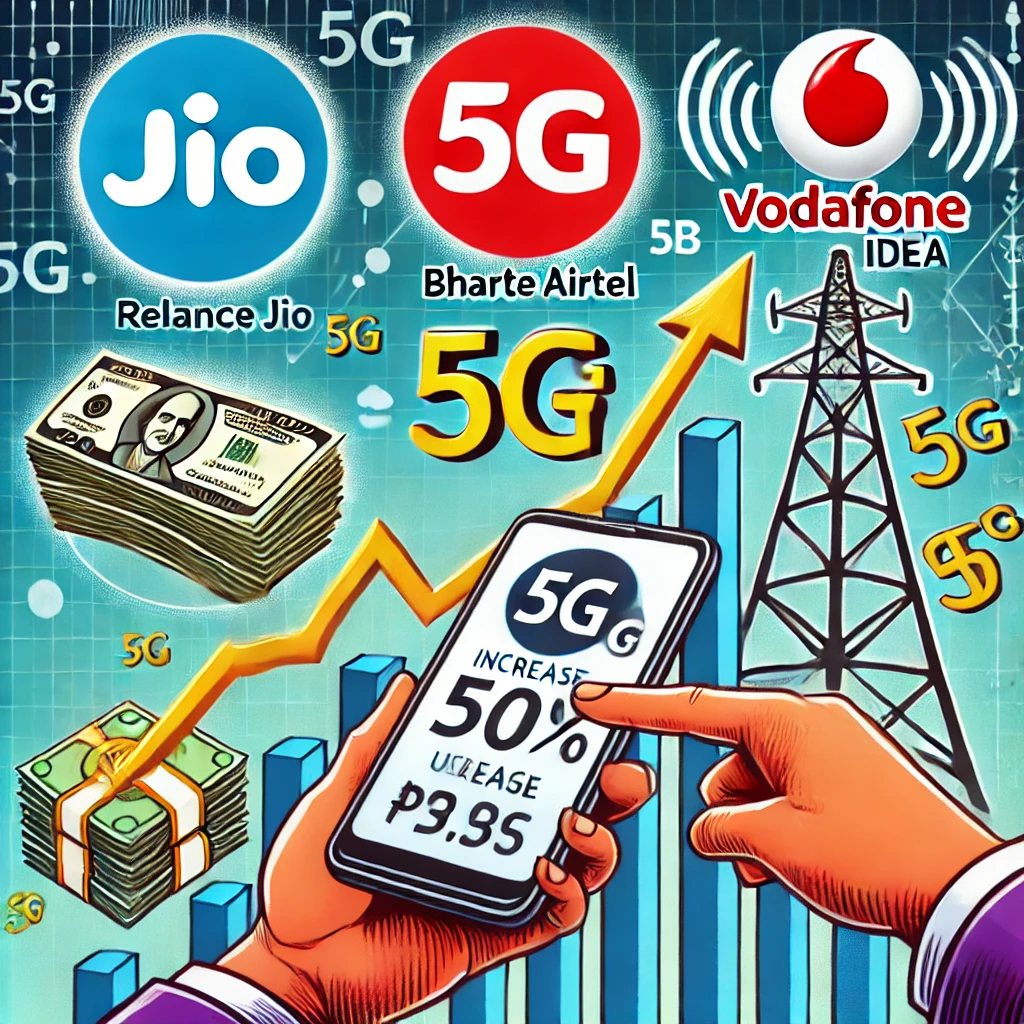
Table of Contents
Overview of the Tariff Hikes:
Reliance Jio:
Hike: 13%-27%
Example: The cost of a 2GB/day pack increased from ₹299 to ₹349.
Bharti Airtel:
Hike: 10%-21%
Example: The cost of a 2.5GB/day pack increased from ₹359 to ₹409
Vodafone Idea:
Hike: 10%-23%
These increases occurred, aimed at effectively monetizing new 5G services and ending the prolonged price war that began in 2016.
Reasoning Behind the Price Revisions:
Gopal Vittal, the Managing Director of Bharti Airtel, and Akshaya Moondra, the Chief Executive Officer of Vodafone Idea, have pointed to the need for pricing structure overhaul in the Indian telecom sector, with both arguing that it is imperative for Indians using more data to be charged more in tune with global practices.
At present, many Indian consumers pay almost the same tariffs irrespective of how much they use, making this become a clumsy way for operators to adjust downwards their prices without causing too much uproar from subscribers.
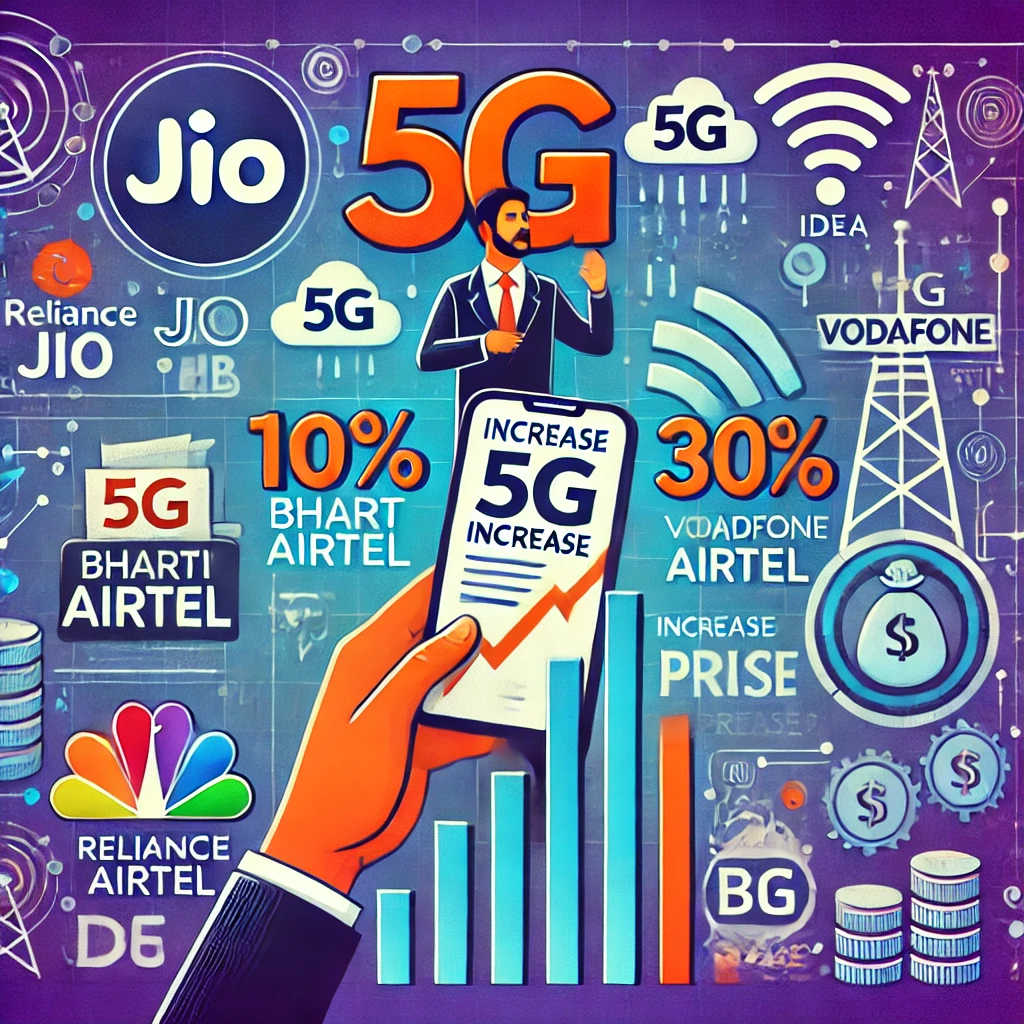
Contextualizing the Hikes:
The price war came into the Indian telecommunications sector from the year 2016, when Jio started offering services at low costs in order to gain customers. Consequently, others like Airtel and Vodafone had no choice but lowering ARPU greatly to retain their client. Consequently, Over the years, this has put immense pressure on the financial health of these companies, hence requiring present increment so as to stabilize market conditions.
Detailed Analysis of New Prepaid Plans:
Reliance Jio's New Prepaid Plans:
Plan Price (₹) | Data | Validity (Days) | New Plan Price (₹) |
155 | 2GB | 28 | 189 |
209 | 1 GB/day | 28 | 249 |
239 | 1.5 GB/day | 28 | 299 |
299 | 2 GB/day | 28 | 349 |
349 | 2.5 GB/day | 28 | 399 |
399 | 3 GB/day | 28 | 449 |
Airtel's New Prepaid Plans:
Plan Price (₹) | Data | Validity (Days) | New Plan Price (₹) |
179 | 2GB | 28 | 199 |
265 | 1 GB/day | 28 | 299 |
299 | 1.5 GB/day | 28 | 349 |
359 | 2.5 GB/day | 28 | 409 |
399 | 3 GB/day | 28 | 449 |
Impact on consumers:
According to a research note from Kotak Institutional Equities quoted by the Economic Times, it is expected that Indian consumers would spend an extra ₹47,500 crore per year because of these tariff increments. The massive rise shows how deeply it will affect the people, making them to reallocate their budgets towards mobile data.
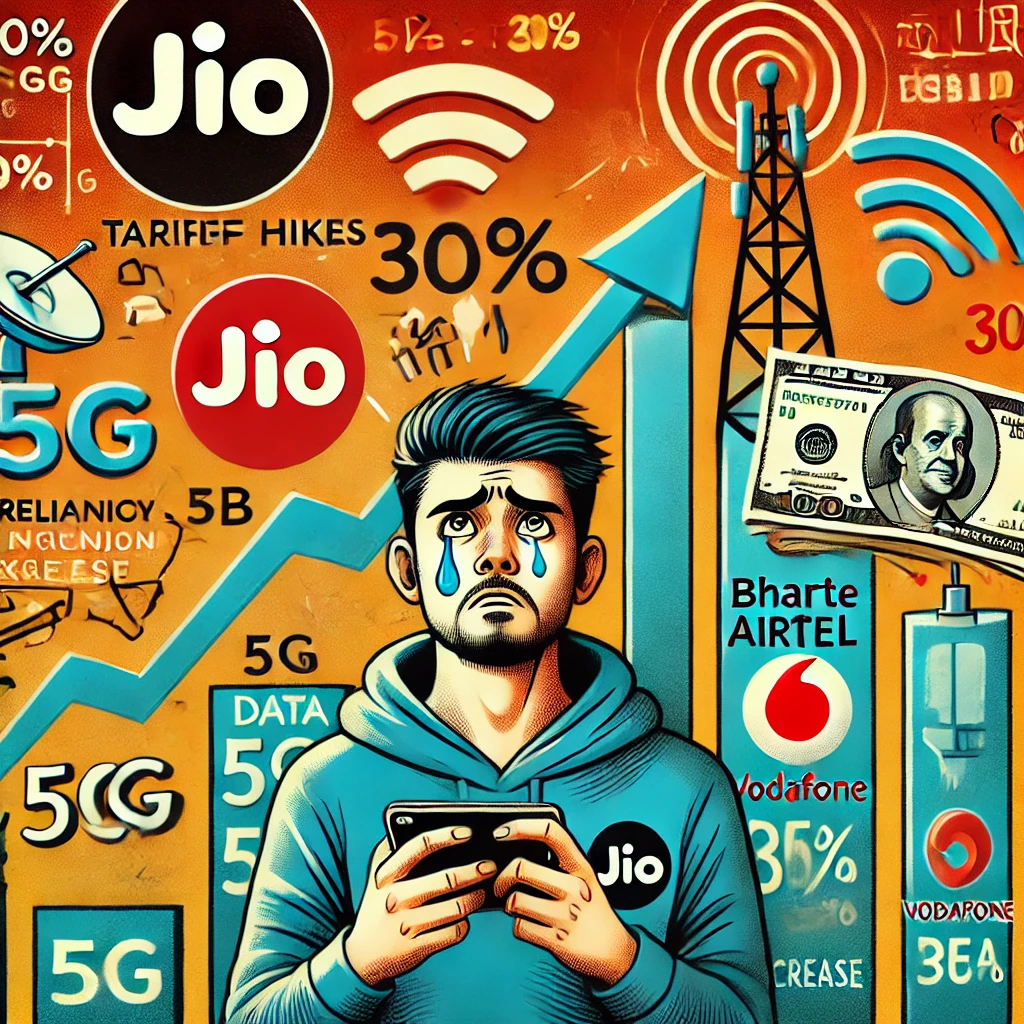
Consumer’s Reactions And Market Implications:
Consumer’s reaction is divided over it. While some believe that the increases are necessary for better service delivery and 5G introduction, others think they will be an unbearable burden on their pockets. It is expected that this increase will lead to some adjustment phases where customers might want to review the amount of data they are using or revisit their plan choices.
From a market perspective the hike in prices is seen as a means to stop the warlike pricing tactics that characterized Indian telecom over the last couple of years. With such kind of approach, it would be possible that telecom operators will have more sustainable business models thereby enhancing service quality and network expansion efforts.
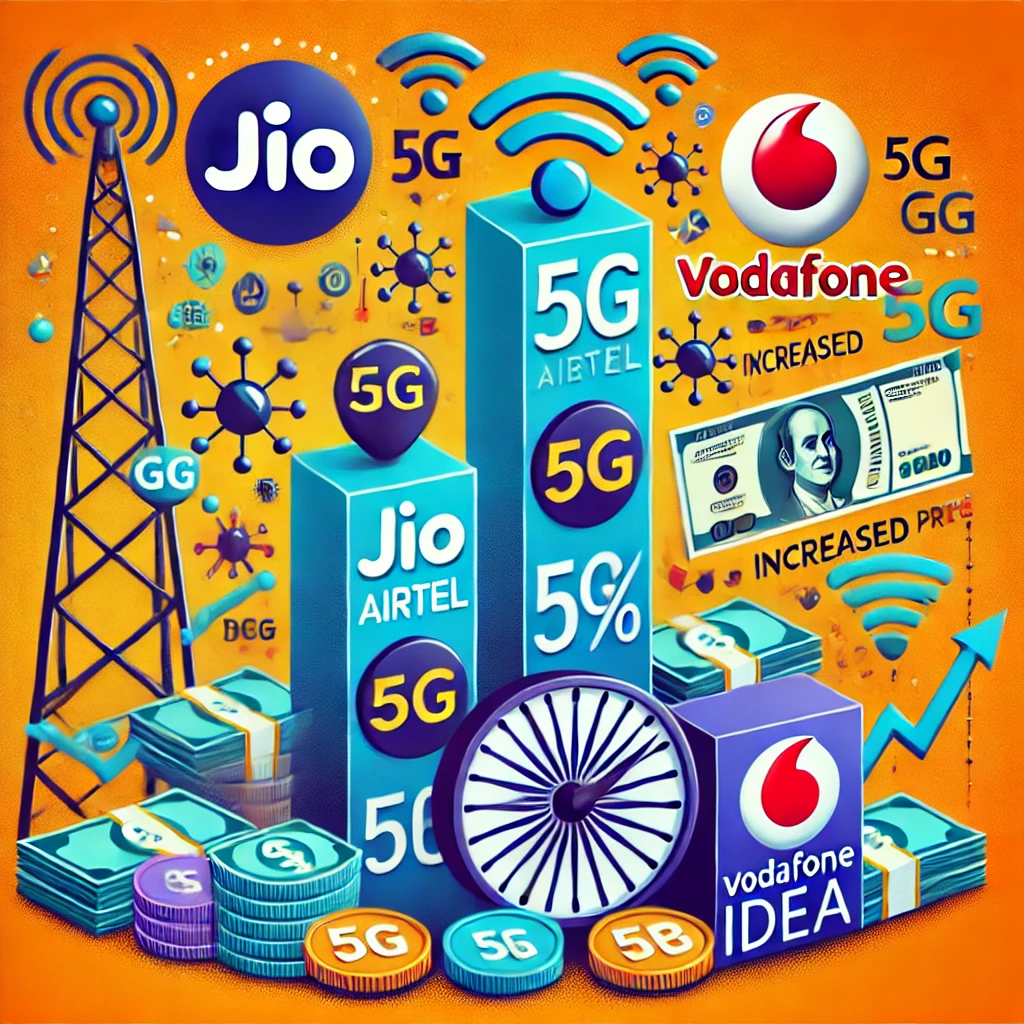
Conclusion:
The recent tariff increments by Jio, Airtel and Vodafone mark a turning point for the Indian telecoms industry. It represents a move towards global pricing benchmarks and ensures economic viability for telecom companies as they introduce 5G services.
Consequently, consumers will incur higher charges but this might result in better quality services and stronger telecommunication infrastructure over time. As the market adjusts to these changes, the true impact on consumer behavior and industry dynamics will become clearer.


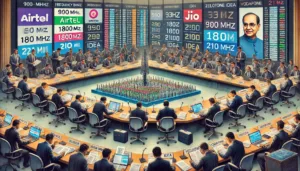

2 thoughts on “The Impact of Tariff Hikes from 3rd July by Jio, Airtel, and Vodafone on Indian Consumers”